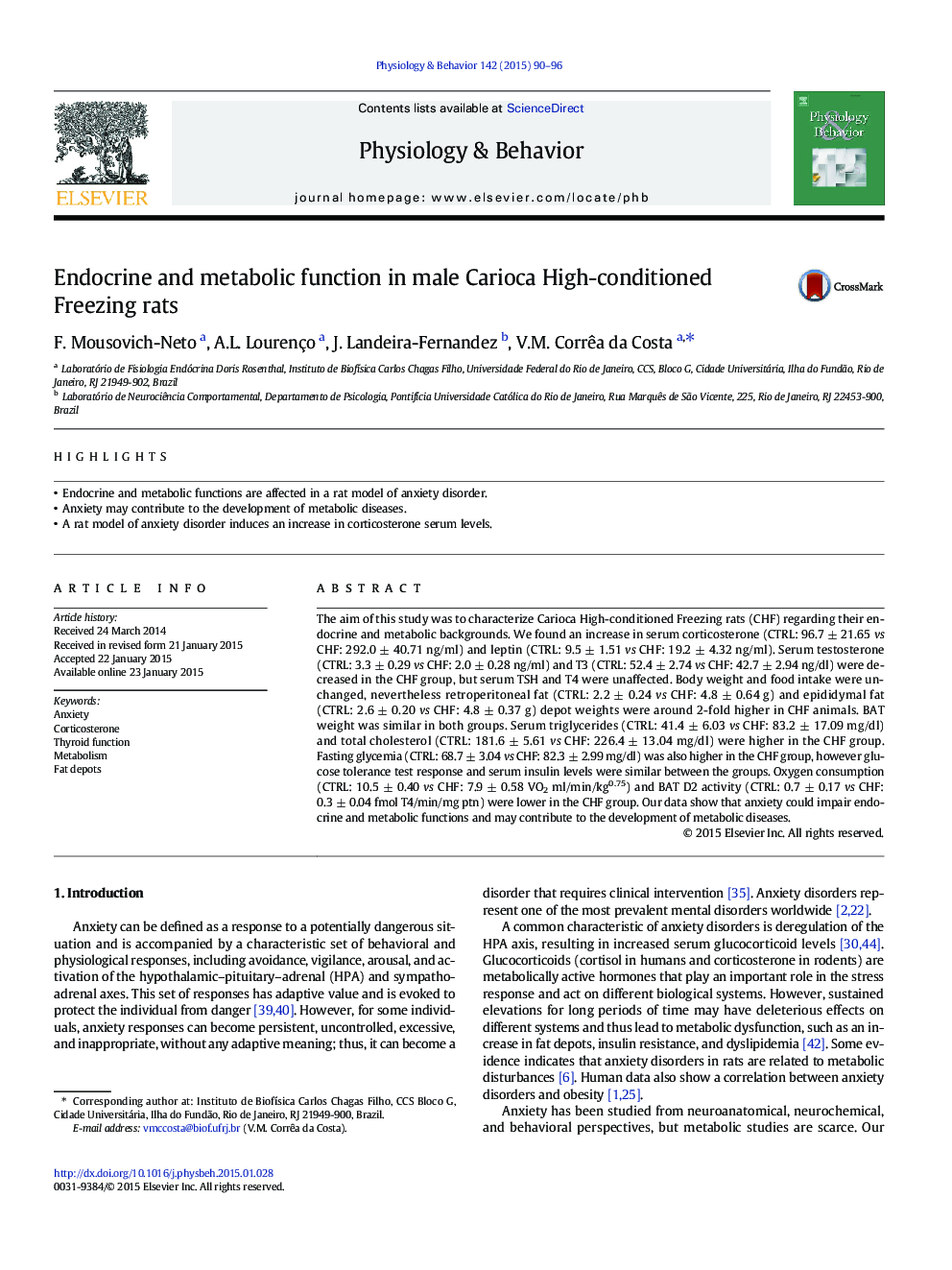| Article ID | Journal | Published Year | Pages | File Type |
|---|---|---|---|---|
| 5923673 | Physiology & Behavior | 2015 | 7 Pages |
â¢Endocrine and metabolic functions are affected in a rat model of anxiety disorder.â¢Anxiety may contribute to the development of metabolic diseases.â¢A rat model of anxiety disorder induces an increase in corticosterone serum levels.
The aim of this study was to characterize Carioca High-conditioned Freezing rats (CHF) regarding their endocrine and metabolic backgrounds. We found an increase in serum corticosterone (CTRL: 96.7 ± 21.65 vs CHF: 292.0 ± 40.71 ng/ml) and leptin (CTRL: 9.5 ± 1.51 vs CHF: 19.2 ± 4.32 ng/ml). Serum testosterone (CTRL: 3.3 ± 0.29 vs CHF: 2.0 ± 0.28 ng/ml) and T3 (CTRL: 52.4 ± 2.74 vs CHF: 42.7 ± 2.94 ng/dl) were decreased in the CHF group, but serum TSH and T4 were unaffected. Body weight and food intake were unchanged, nevertheless retroperitoneal fat (CTRL: 2.2 ± 0.24 vs CHF: 4.8 ± 0.64 g) and epididymal fat (CTRL: 2.6 ± 0.20 vs CHF: 4.8 ± 0.37 g) depot weights were around 2-fold higher in CHF animals. BAT weight was similar in both groups. Serum triglycerides (CTRL: 41.4 ± 6.03 vs CHF: 83.2 ± 17.09 mg/dl) and total cholesterol (CTRL: 181.6 ± 5.61 vs CHF: 226.4 ± 13.04 mg/dl) were higher in the CHF group. Fasting glycemia (CTRL: 68.7 ± 3.04 vs CHF: 82.3 ± 2.99 mg/dl) was also higher in the CHF group, however glucose tolerance test response and serum insulin levels were similar between the groups. Oxygen consumption (CTRL: 10.5 ± 0.40 vs CHF: 7.9 ± 0.58 VO2 ml/min/kg0.75) and BAT D2 activity (CTRL: 0.7 ± 0.17 vs CHF: 0.3 ± 0.04 fmol T4/min/mg ptn) were lower in the CHF group. Our data show that anxiety could impair endocrine and metabolic functions and may contribute to the development of metabolic diseases.
